-By Jeannette Gurung, Founder and Executive Director of WOCAN
Introduction: The Origins of WOCAN
In 2004, as a woman forester navigating a male-dominated sector, I found myself facing the invisible barriers that hindered women’s inclusion in agriculture and natural resource management (NRM). At the time, I was working for a regional environment and development organization in Asia, where I advocated for gender equality and women’s empowerment and their integration in policies, programs and the organizational culture. However, through this struggle, I came to realize that not only was gender integration within existing institutions tough to achieve, it also was not enough. Women like me needed a space to come together, share our challenges, and drive change on our own terms. And so, WOCAN (Women Organizing for Change in Agriculture and Natural Resource Management) was born.
Our founding meeting in Rome gathered six women with vast global experience, united by a common mission: to empower women professionals in agriculture and NRM, support gender equality, and promote environmentally sustainable development. We saw that meaningful change would require efforts at both the individual and institutional levels.
WOCAN’s Mission: Empowering Women and Transforming Institutions
The core purpose of WOCAN, as defined by our founding members, was to create an international network of individuals committed to organizational change for gender equality. From the beginning, our stated goals were:
- Empowering women professionals: Offering platforms for women to share experiences, learn, and grow.
- Building alliances: Promoting cooperation between women to amplify our collective energy for rural empowerment and environmental sustainability.
- Transforming organizations: Supporting women’s leadership in agriculture and NRM sectors to influence policy and decision-making processes.
To achieve these goals, WOCAN focused on two key areas: individual women at the community level and organizations that could create an enabling environment for gender equality. Our Theory of Change emphasized that both levels need attention for sustainable, impactful change.
From Inception to Global Network: WOCAN’s Growth
The first few months of WOCAN were filled with optimism and the recognition that our experiences were shared by many women globally. In our first year, we attracted 50 members from across Africa and Asia. Today, WOCAN has grown to over:
17% of are male supporters

Members have varying levels of gender awareness and skills; many women members state that they are the only females in their organizations or departments; others wish to learn about gender and organizational change from their association with WOCAN. Many have formal gender responsibilities in their organizations and universities, and wish to join a network to learn and share more about gender and NRM. All have a commitment to gender equality and women’s empowerment, related to the agriculture and natural resource management sectors.
Many members have also contributed to WOCAN activities, serving as trainers, mentors, and experts for WOCAN’s initiatives. WOCAN also uses its membership database to identify potential partners and consultants for its programs.are
Listen to Dibya Devi Gurung, WOCAN member and Core Associate talk about the role of women’s organizations in building social and climate resilience of communities.
Learning and Change: from Advocacy to Training and Capacity Building to Certification
WOCAN’s journey from advocacy to capacity building has been pivotal in making lasting change. Our initial advocacy efforts focused on pushing for gender inclusion in international environmental agreements like those of the UNFCCC, when very few other women-led organizations were doing so. However, as others stepped into this space, we recognized our value was to provide practical tools most relevant to our sectors of expertise, to help organizations integrate gender into their policies and practices.
Based on our collective skills and experience as technically trained professionals in the agriculture and NRM sectors, we realized that WOCAN could fill a demand of environment and development organizations to build their capacities for integrating gender into their policies, plans and organizational cultures. WOCAN developed a Gender Integrated Planning course that trained organizations to create concrete Gender Action Plans using our unique 9 Box Framework for Gender Analysis. This participatory approach has been adopted by multiple organizations, providing a pathway for institutional change that goes beyond surface-level interventions. To this day, this approach is one of few that views organizational change as key to triggering the large changes needed for gender equality. We delivered this training to more than 25 organizations through our cadre of selected WOCAN members trained in 2010 to serve as trainers for this course, named as ‘Core Associates’, from across Africa and Asia.
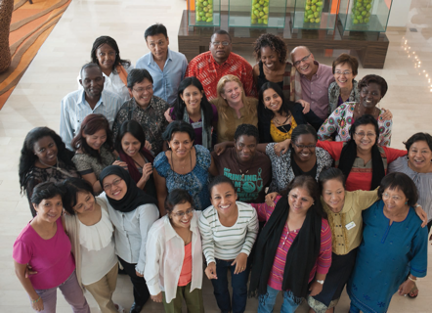
In 2011, we introduced a course on Reframing Leadership for Gender Equality based on learning acquired in women’s leadership courses of others, adapted to the experiences and needs expressed by our Core Associates. This builds on prevailing ideas of leadership as largely conceptualized and practiced in “masculine” terms, which hinders gender equality and individual performance. This initiative helped both women and men challenge traditional, male-centric notions of leadership.
The leadership training and mentorship spaces that WOCAN provides are top-notch. It offers both: conceptual richness and practical operational tools to understand and practice leadership.
Their frameworks and tools are handy to use and can be adapted for different types of audiences within the workspaces and beyond. I have become more self-aware and more self-equipped to create positive influences to position gender and social equity ideas within technical spaces.
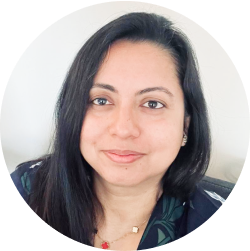
WOCAN’s training enabled me to become a more analytical leader and decision maker. It also helped me understand the multicultural differences and dynamics and as i work in an international organization, I am better able to understand people, look at the gestures, and generally improve on my communication.
From that connection I was also invited to sit in the advisory board of WOCAN’s W+ standard, where I am able to share the ground reality of the situation in Africa.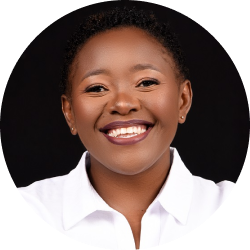
WOCAN has affected people on an individual level. Training participants will always tell us that WOCAN's training on relational leadership had a significant impact on their careers."
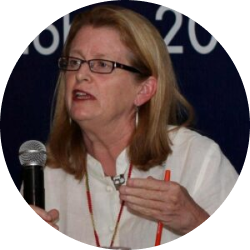
WOCAN is also actively engaged in social media with over 2,512 followers in Linkedin . We were very active in Twitter or X but since the changes in the ownership we decided to move to bluesky (https://bsky.app/profile/wocan.org) do connect with us.
We regularly post relevant publications in our website’s resource section and share it in our digest for our members and subscribers.
We also produced two podcast series:
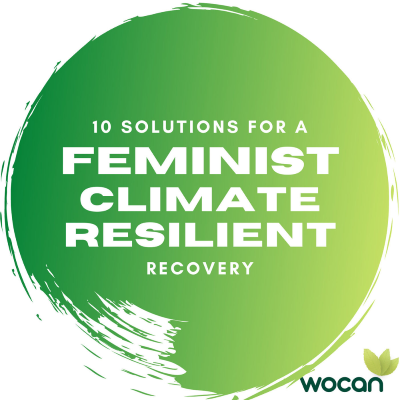
10 Solutions for Feminist Climate Resilient Recovery
In this podcast series, we discussed 10 solutions for a climate resilience post-recovery, through conversations with international thought leaders
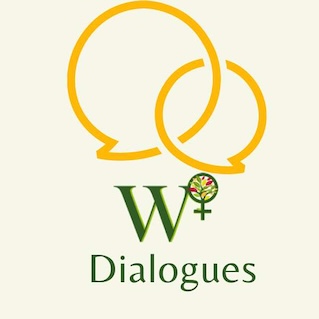
W+ Dialogues
In this podcast series, we discussed the development and implementation of the W+ Standard.
We have had an 1,545 all time download of the podcasts and the top three downloads are:
– Women’s increased access to climate investments (432 Downloads)
– Compensation for women’s social and environmental contributions (208 Downloads)
– Nature-based solutions (208 Downloads)
Recognizing Gaps to Determine New Directions
Despite these successes, we became aware of the limitations of our approach. We observed that traditional capacity-building efforts weren’t enough to effect real change in the male-dominated fields of agriculture and NRM. Training was often insufficient to motivate organizations to adopt gender-inclusive practices. Existing sticks and carrots of development agencies were not enforced. We determined a new approach was needed, that would incentivize the changed behaviors that we believed would trigger significant changes.
We also reflected on the poor performance and low uptake of actions for gender equality by projects of the climate sectors that are very male-dominated at the level of decision making, and yet women-dominated at the household and landscape levels (for management of water, farms and energy, for example). Even many participants of our gender training courses from those sectors struggled to think of concrete activities they could support for women’s leadership, for example, though they were positively influenced by the course to take such actions.
Furthermore, we were reminded of the persistent gap of extreme scarcity of financial resources available to women’s groups and organizations engaged in these sectors. A staggering statistic from recent research revealed that only 0.2% of overseas climate finance reaches women-led projects and that even in climate funds allocated to Indigenous Peoples and Local Communities, only 5% reaches women.
To address these gaps, WOCAN began exploring new approaches and challenged ourselves:
The W+ Standard: A Breakthrough in Gender-Responsive Climate Action
In 2015, WOCAN launched the W+ Standard, a market-based framework that measures, quantifies and monetizes women’s empowerment outcomes in climate and development projects. This innovation allows us to:
- Increase gender-equality-related activities by providing measurable outcomes.
- Incentivize organizations to implement gender-responsive actions through a market-based approach.
- Generate new revenue streams for women’s organizations by requiring project implementers to share a portion of revenue from the sale of W+ credits.
The W+ Standard has allowed WOCAN to pivot from advocacy to capacity development to becoming a solution provider in climate finance, providing a tested model to scale gender-responsive climate actions. It has proven to be an effective mechanism for channeling resources directly to projects and to women’s groups, allowing them to tackle climate adaptation and mitigation needs with increased levels of resources, on their own terms.
WOCAN has provided W+ Standard technical assistance to a diverse group of donors and clients across Asia, Africa, and Latin America, including the governments of Sweden, Canada, Switzerland, Australia, the USA; UN agencies and MDBs including the World Bank, IFAD, FAO, and UNDP; carbon project developers including VNV Advisory; and NGOs and foundations including the CGIAR, OXFAM, the Bill & Melinda Gates Foundation and many others.
Endorsers of the W+ Standard include: the UNFCCC, S&P Global, Verra, Swedish Energy Agency, the World Bank Climate Funds Management Unit, the Global Impact Investing Network, the Asian Venture Philanthropy Network, the Independent Evaluation Unit of the Green Climate Fund, the Shell Foundation, the UNREDD, PROGREEN of the World Bank and Integrity Global Partners
Future Directions: Scaling Impact and Amplifying Women’s Leadership
Looking ahead, WOCAN is excited about expanding the use of the W+ Standard, with support from the Bill & Melinda Gates Foundation and other funders and investors. As we continue to grow the W+ ecosystem, our focus will be on enhancing the role of women leaders in climate action and ensuring that they have the financial and technical resources they need to drive meaningful change.
The W+ Standard has already shown us that measuring women’s empowerment can be both a tool for development and a financial driver, ultimately leading to transformative climate action that benefits both women and the planet.
Conclusion: WOCAN’s Vision for the Next 20 Years
As WOCAN celebrates its 20th anniversary, we reflect with pride on the progress we’ve made and the women we’ve empowered along the way. But we know that our work is far from done. The challenges of climate change, gender inequality, and resource access are more pressing than ever. However, with the support of our growing community and a commitment to innovation and collaboration, we are confident that the next 20 years will see even greater strides in advancing women’s leadership in agriculture, NRM, and climate action.
Together, we will continue to build a future where women have the tools, the voice, and the resources to lead change for a sustainable and equitable world.